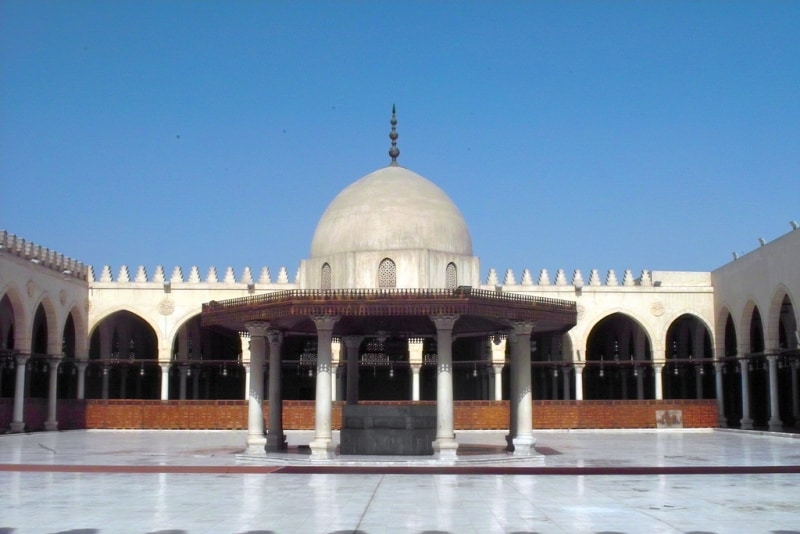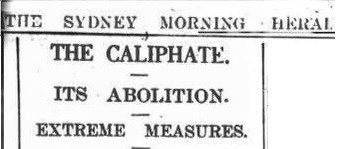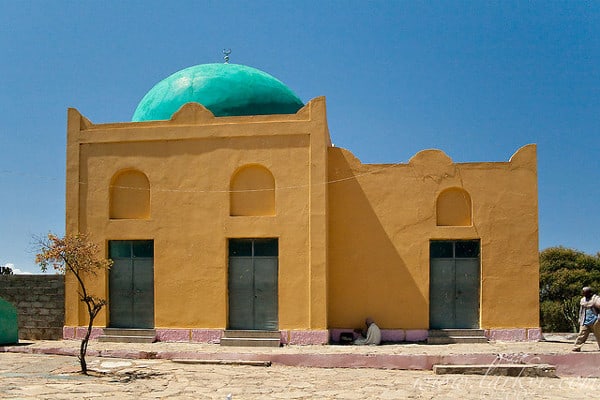One of the greatest Shafi’i scholars of all time was Imam Izz ibn Abd al-Salam. He spent most of his life fighting innovations in his time, but more important for us to note in this article is that he did that most high of deeds, accounting the rulers wherever he was. His activism in this regard eventually lead to his house arrest and exile.
His life in activism has contemporary relevance to any da`wa carrier, as we will learn from his life that he would never compromise on the Haqq (‘truth’), that he would openly speak out against oppression and injustice, that he would account the rulers and their harmful policies of peace with the enemies, and he would have to refute the new bid`a in concepts and thoughts inserted in this religion, all in sacrifice and reliance upon Allah.
His Life in Scholarship
His full name was Abu Muhammad `Izz al-Din `Abd al-`Aziz b. `Abd al-Salam b. Abi ’l-Qasim b. al-Hasan b. Muhammad b. al-Muhadhdhab al-Sulami, al-Dimashqi al-Shafi`i al-Ash`ari.[1] He came from the tribe of Banu Sulaym[2] and was a native of Damascus. His known shorthand was al-`Izz Ibn `Abd al-Salam.[3]
His work earned him the title of sultan al-`ulama’ (‘the sultan of the religious scholars’), and he would eventually hold the status of shaykh al-Islam.[4] He mastered all the religious sciences of his day especially the science of usul (‘Islamic jurisprudence’), fiqh (‘positive law’) and the Arabic language, soon reaching the rank of mujtahid.[5]
Interestingly, he was a known adherent and practitioner of tasawwuf as it was originally practiced [6] and is attributed with carrying out miraculous feats such as supplicating to Allah to turn the strong winds and stormy Nile against the Crusaders which finally defeated them.[7]
His teachers included Ibn `Asakir, Sayf al-Din al-Amidi and Jamal al-Din Ibn al-Harastani, and among his students were Al-Dimyati, Ibn Daqiq al-`Id, al-Yunini and Abu Shama…[8]
He possessed the piety, devoutness, spirituality and humility that you would desire in a leading scholar, but he was also outspoken, fearless and courageous, and it is these latter three aspects of his character that are always overlooked but they hold immense significance especially for anyone engaged in the work of da`wah.
His stance against a Ruler
Of note in this regard, in particular, was his stand against Al-Salih Isma`il, ruler of Damascus.[9]
In 635 the beginning of al-Salih Isma’il’s rule, petty differences and disunity existed between the ruler and his nephew Najm al-din who ruled Egypt.[10] Najm al-Din sought to re-annex Damascus with Egypt and advanced to do that.[11] Fearing the advance, al-Salih Isma`il entered into alliances with the Crusaders (‘Franks’ [al-afranj]) who were occupying some of the coastal towns of Syria and ceded its areas of Shaqif,[12] Safad,[13] Tyre,[14] Tiberias[15] and the coastal provinces to them. These were all strategic and religious areas, holding nigh-obligatory significance for the safety and security of Muslim peoples.[16]

The ‘Amr ibn Al As Mosque in Egypt, where Imam ‘Izz Al-Din is known to have spoken and delivered, among many other locations.
Al-Salih Isma`il also allowed the Crusaders to purchase arms in Damascus.[17] Al-`Izz Ibn `Abd al-Salam was incensed and responded in two ways:
- He issued a fatwa forbidding the selling of arms to Crusader enemies[18]
- He openly exposed the policy of the ruler, primarily by mentioning his name from the Friday khutba.[19]
Furthermore, there was his exposing of the corruption of the ruler. The Islamic lands in the past would also have vices and areas of depravity. Often scholars would stay silent and not speak out against prevalent vice in society, no matter how obvious.
The sense of duty to expose and challenge evil and bad deeds drove al-`Izz Ibn `Abd al-Salam to the very court of the sultan at the time and openly expose him. The style was offensive and stern and offered no pardon or ease.
The great scholar Imam Taqi al-Din al-Subki recounts the event from his Shaykh as follows:
“I heard the shaykh and Imam (Allah have mercy on him) say, I heard our shaykh al-Baji say, our shaykh `Izz al-Din went to the Sultan in al-Qal`a one time on Eid day and saw the army in full array before the court (majlis) of the ruler who does not make an entrance before his people except in splendour as was the custom in Egypt and the officials would begin kissing the floor before the Sultan. The Shaykh [al `Izz Ibn `Abd al-Salam] turned to the Sultan and called out to him saying, ‘O Ayyub! What is your argument before Allah when he asks you, ‘Did I not give you the land of Egypt and yet you permitted alcohol?’’ [The Sultan] asked, ‘is this the case?’ [al `Izz Ibn `Abd al-Salam] replied, ‘indeed, wine is sold in such and such tavern’ – mentioning other evil acts (munkarat) too – ‘while you bask in the luxury of this kingdom!’ He was shouting at the top of his voice in front of the army. [The Sultan] said, ‘my master, I am not the one who did this. It s from the time of my father. [al `Izz Ibn `Abd al-Salam] retorted, ‘what, are of those who say (Lo! We found our fathers following this and we are guided by their footprints)?’[20] The Sultan ordered the tavern be closed.
I heard the Shaykh and Imam say that I heard al-Baji say, I later asked [al `Izz Ibn `Abd al-Salam] when he had returned from the Sultan and had publically done this good, ‘my master how are you?’ he replied, ‘my son, I saw [the Sultan] in that grand state and wanted to humiliate him in case he puffed himself up with pride.’ I then asked him, ‘my master did you fear him?’ He replied, ‘my son, I swear by Allah, when I recalled Allah’s majesty in my heart, the Sultan became like a kitten in front of me!’…”[21]
The links we want to draw to today’s state of scholarship and the accounting of rulers are obvious. We see governments making policies everyday that assist the enemies of Islam and leading scholars will remain silent, or misdirecting. Aiding, supporting and making treaties with America, Britain and Israel in allowing them to hold strategic positions in Muslim lands, to supply weapons against Muslims and to use Muslim resources against Muslims. None of our senior scholars even dare to issue fatwas against blatant violations of Allah’s laws and the interest of the Muslims.
We see few of our scholars remove the name of the ruler or king from the du`as and sermons nor openly criticise them by alerting the Muslim congregation to their detrimental policies. We don’t have much leadership from our imams/scholars that is effective or critical. Domestically, the religious scholars here although have the interest of their communities at heart, are either politically naive or used against us. They help, legitimate and call for the government policies of incorrect integration and moderate/liberal forms of Islam.
And of course we see Muslim governments in all different guises allowing for or permitting unlawful modes of behaviour and conduct into Muslim societies and introducing cultural patterns from the West that are passing unnoticed – deliberately – by our scholars. Indeed, some Muslim governments even force or pressurise scholars to issue fatwas that agree with their agenda. [2.] Our scholars turn a blind eye to corruption and depravity in society calling for purification of the heart first and thereafter engaging with social problems without urging political activism and intellectual struggle against the evil (munkar) that goes on.
Against Unlawful Innovation
In every age of Islamic history, there has always been interaction of ideas and thoughts. New traditions and cultures bring with them their own viewpoints and beliefs which gives rise to the possibility of different and un-Islamic thoughts and ideas to be mixed up with Islam. Now, more than ever before, there is an open and direct attack on Islamic beliefs, values, laws, ideas and traditions. This attack is intellectual and political. In the past, intellectual challenges of the day were always refuted (e.g. Imam Ghazzali and Greek philosophy, etc.).
- Thus the reality in the West also cannot be ignored. There are some of our scholars who are all too affected by non-Muslim governments and their pressures and attempt to justify (Islamically) official policies and ideas, e.g. incorrect forms of integration, full political participation (e.g. voting for Labour, Conservative, Lib Dem…), unclear adoption of British identity/values, etc.
- Some of our scholars do not attempt to expose or critique the bid`a in political and philosophical ideas but rather endorse them, e.g. that some try and claim there is no Caliphate, no political aspect to Islam, democracy is Islamic, secularism is correct, etc.
Some beautiful quotes from al-Imam al-`Izz Ibn `Abd al-Salam:
“Allah has ordered us to engage in jihad to give victory to His religion. The [difference being that] the scholar’s weapon is his knowledge and tongue just like the ruler’s weapon is his sword and spears. So, just as rulers are not permitted to put down their weapons in the face of atheists and polytheists scholars are not permitted to still their tongues in the face of heretics and innovators.”[22]
“…every religious scholar must, when he sees the Truth brought low and what is Right undermined, muster all the strength he has in order to assist the Truth and what is Right. He must consider himself more deserving of humiliation and incapacitation than [Truth and Right]. If he raises the Truth and makes manifest what is Right, he may seek their shade and content himself with whatever [gains] may come from elsewhere.”[23]
These quotes indicate:
- Jihad through the sword, pen, tongue and wealth.
- Scholars must not acquiesce to pressure and force but stand firm on the Truth.
- Atheism, polytheism, heresy and bid`a must be fought by those who have the knowledge to refute it.
- Scholars must be committed to upholding the Haqq/Truth and what is right. > even if this means scholars are humiliated in its cause.
- Truth must be raised high and be victorious.
Additional points
The da`wa carrier must realise that Islam is under attack on all levels – popular (e.g. TV, films, news, documentaries, print press, etc.) and academic and that our ulema have to address these levels of attack.
Islam has had a history of scholars who have engaged with the political ruling class and so the urgency of speaking out politically against corruption, evil, vice and bid`a were an established part of the work of our noble scholars of the past. So, she should remind our scholars today of maintaining this duty and work like the scholars of the past.
The most serious casualty could be Truth. It can never be acceptable to make Truth the casualty – it is too important and is above everyone. Our scholars have to be reminded that there can be no compromise with the Truth.
Original piece by Ustadh Safarruk Chowdhury, edited for the Hizb ut-Tahrir Australia website.
[1] S. R. Ali, Sultan al-`Ulama’ Al-Izz ibn Abdussalam, p.10.
[2] Ibid, pp.10-11.
[3] Ibid, p.10.
[4] G. F. Haddad, The Belief of the People of Truth, p.3.
[5] Ali, Sultan al-`Ulama’ Al-Izz ibn Abdussalam, pp.29-74. A mujtahid is someone who is able to understand and directly extract a rule or law from the Qur’an and Hadith.
[6] Haddad, The Belief of the People of Truth, pp.9-14.
[7] Ali, Sultan al-`Ulama’ Al-Izz ibn Abdussalam, pp.77-80.
[8] All masters of the Islamic sciences in their own right.
[10] Ali, Sultan al-`Ulama’ Al-Izz ibn Abdussalam, p.125.
[11] Ibid, p.125.
[13] See: http://en.wikipedia.org/wiki/Safed
[15] See: http://en.wikipedia.org/wiki/Tiberias
[16] Ali, Sultan al-`Ulama’ Al-Izz ibn Abdussalam, p.125.
[17] Ibid, p.126.
[18] See al-Yunini, Dhayl Mir’at al-Zaman, 2:173 and al-Maqrizi, al-Suluk fi Ma`rifat Duwal al-Muluk, 1:303.
[19] See al-Subki, Tabaqat al-Shafi`iyyat al-Kubra, 5:100:
“I say, al-Shaykh `Izz al-Din remained inDamascusa few days where [the ruler] al-Salih Isma`il known as Abu ’l-Khayth who allied and sought help with the Franks and ceded to them the cities of Sayd, Qal`a and al-Shaqif. al-Shaykh `Izz al-Din rejected this and omitted the praise and supplication for [the ruler] in the Friday sermons. He was supported by the shaykh Abu `Amr ibn al-Hajib al-Maliki. The Sultan was angry with both of them and exiled them to a prison within the fort of Damascus around 639…”
[20] See Q. 43:22.
[21] al-Subki, Tabaqat al-Shafi`iyyat al-Kubra, 8:211-212.
[22] Al-Mulha fi I`tiqad Ahl al-Sunna of Ibn `Abd al-Salam as fully cited in al-Subki, Tabaqat al-Shafi`iyyat al-Kubra, 8:228.
[23] Ibid, p.228.
![]()
















